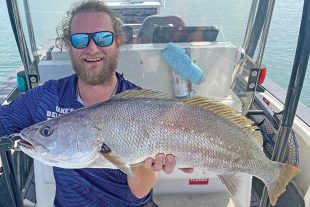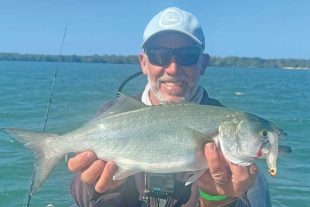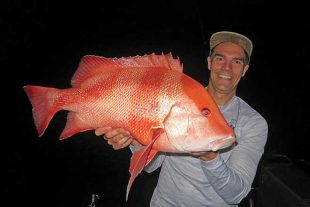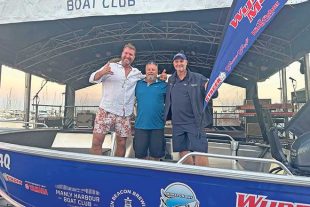It is a superstition still held by many today, and low and behold the poor soul who inadvertently brings bananas onto a boat. Usually when the skipper finds someone has a banana on the boat it is blamed as the cause of a poor catch up until that time, and the new fishing day starts when the bananas or skins are thrown overboard and someone is castigated for daring to bring them on board.
The funny thing is, many local skippers really do carry on like this and will still attribute some form of blame if the fishing is poor, even though no bananas are on board. Is there something in a banana that causes a chemical reaction to stop a fish from biting. No, not at all, and the whole caper of no bananas on board so as not to bring bad luck is just a big load of bulldust.
Why do I bring this up you may ask? Well on a recent day offshore with my son Ash and a neighbour Andy who hadn’t fished offshore for something like 30 years, we went searching for a feed of snapper and pearl perch and proceeded to have a fairly good day, with everything going just right. With an excellent feed in the icebox and starting to count fish so as not to exceed bag limits, Andy decided to bring out his lunch and hoe into a banana. Ash looked at me and we smiled while asking Andy if he was aware of the superstition that bananas on board bring bad luck.
Well the myth was news to him and he pulled out another one too. The fishing had been good all morning, with absolutely no bad karma created by the bananas and we proceeded to get some fish and banana photos just for the fun of it to celebrate a good day. We couldn’t say the fishing was any better after lunch when the bananas had been consumed and their skins exorcised, but Andy (who is used to fishing Moreton Bay in very shallow water with no sinker) was getting a little tired from catching a number of good fish on heavy gear, so he was excused as long as he kept hooking the fish and we helped with the retrieves.
It was just another solid day at the office with good company. To all the precious people who go ballistic when someone innocently brings a banana on board: lighten up, treat people with respect and enjoy your day too. Even without bananas, the fishing has mostly been fairly good of late.
Snapper have continued to be on the chew, with solid fish taken on floaters while the rod is left in the holder with the ratchet on, drag set lightly and the bait allowed to rise just off the bottom while drifting along.
The 10-20lb 7’ Wilson Venom spin stick has been especially deadly on snapper in the shallows and the 15-40 lb model has excelled in the deeper water, whether using the method above or working a bait down into the snapper zone. That rod has quickly become an on board favourite and most people who fish with it don’t want to pass it around.
One of the crew pulled a 56cm pearl perch from the northern end of the 33s while dropping slowly to the bottom with the heavier Venom spin stick, which was a nice bonus because those bigger pearls are often higher in the water column. Fishing the bottom on that northern ground has been great for getting in long drifts and the area has produced excellent parrot, smaller snapper and pearl perch. The water temps during winter have been noticeably higher due to the amount of current that has prevailed, but it hasn’t slowed the fish bite in those areas; instead we just seem to be doing longer drifts most days.
There was actually a small school of dolphinfish looking inquisitively at us on a recent trip and it wasn’t even mid-August. On the closer-in grounds and anywhere else where the current has not been an issue, a massive amount of bait has been stacked up. Working livies and plastics around the big bait schools has been quite productive for kingies, amberjack and cracking snapper.
Some days we have had more success looking for large bait schools away from the structure and working them than we have had over more traditional areas of hard bottom.
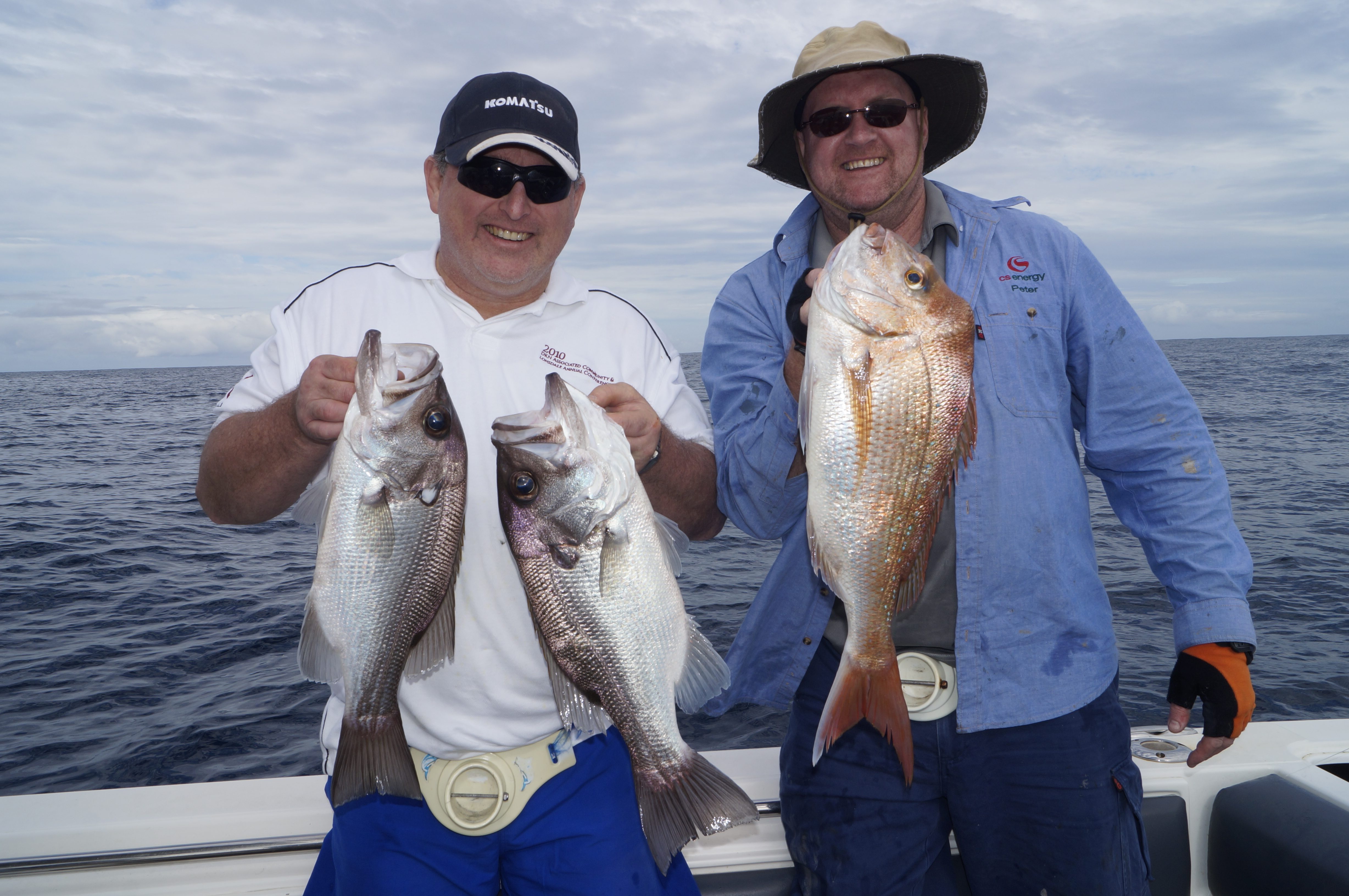
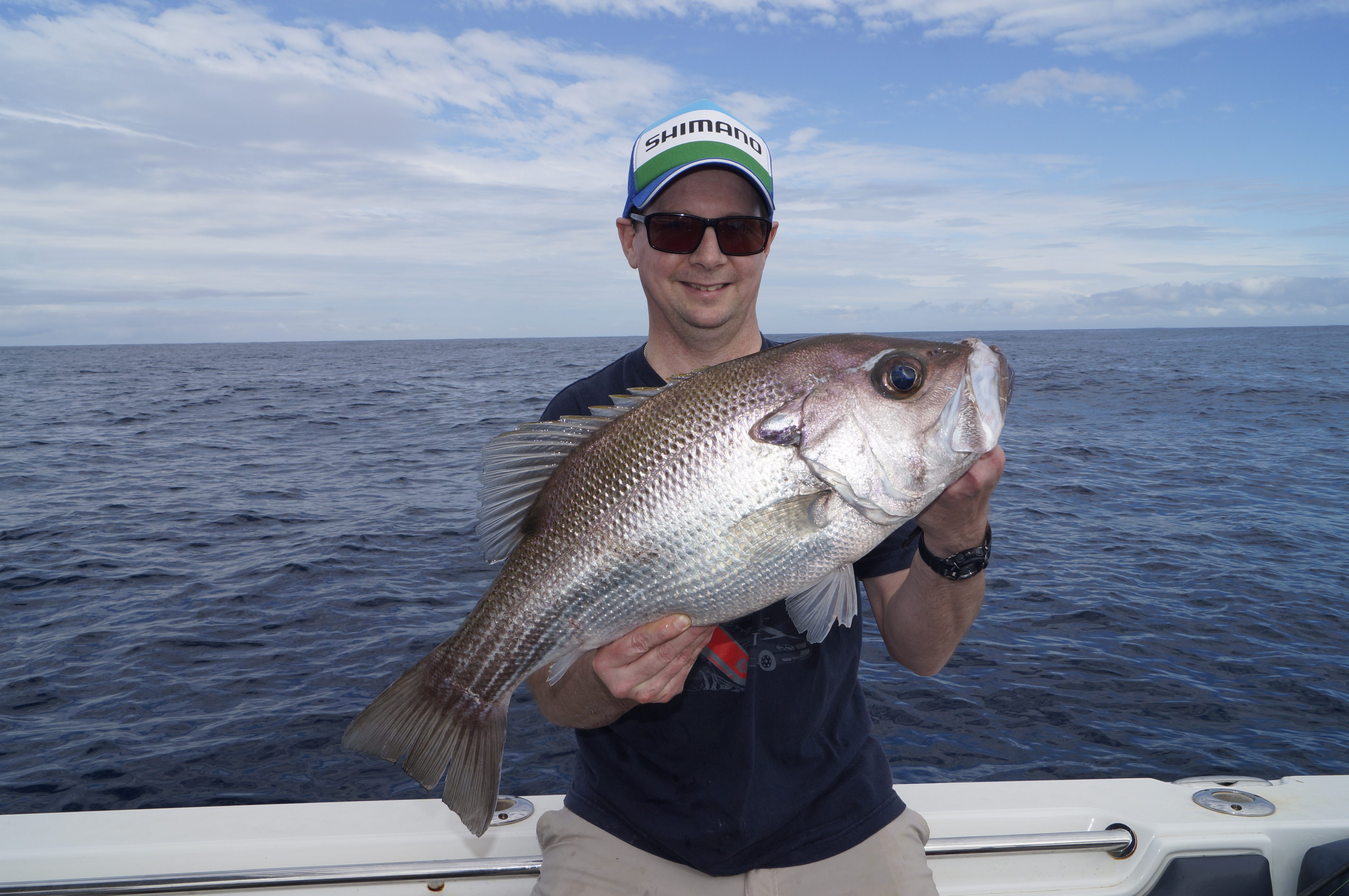
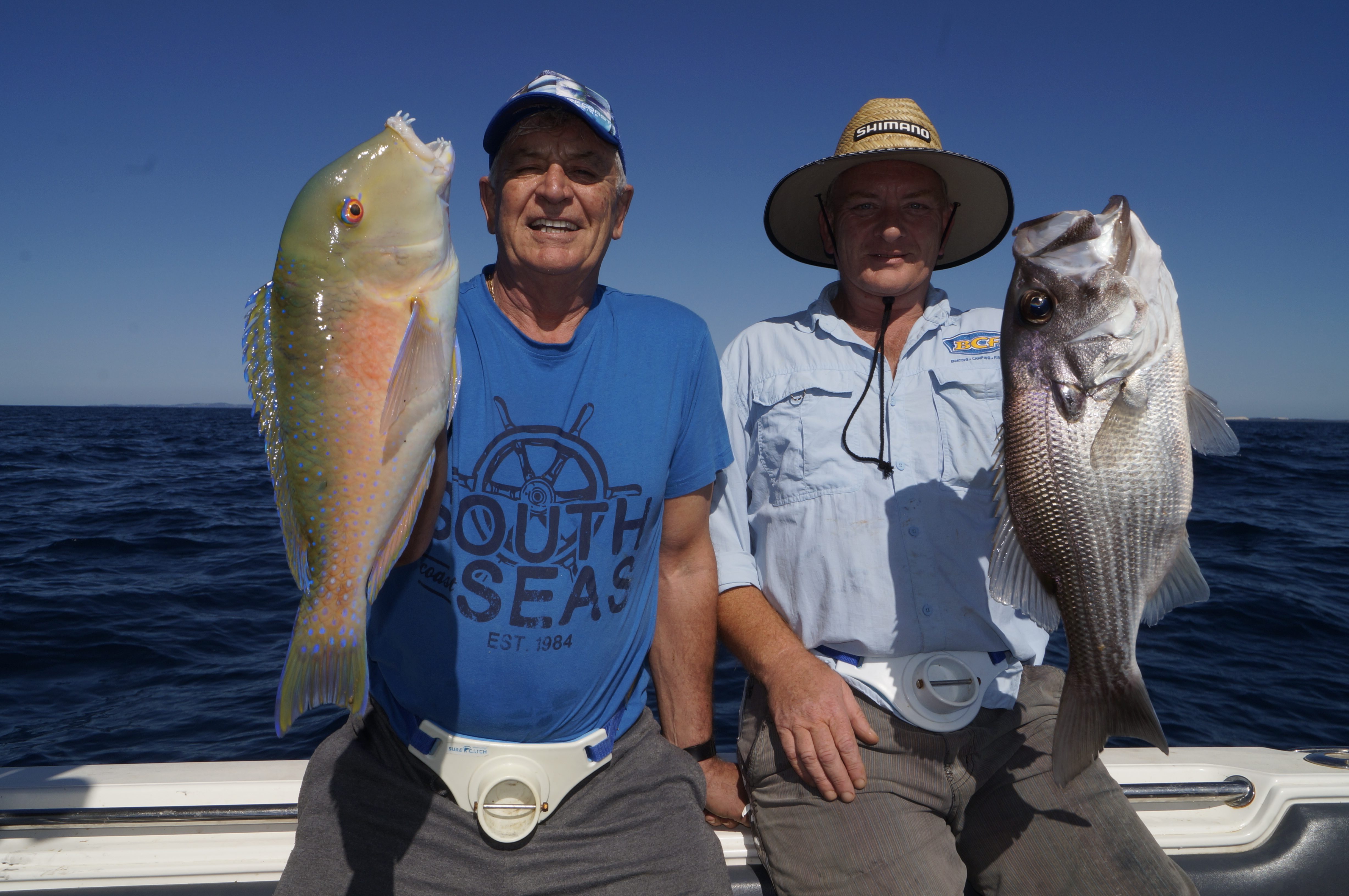
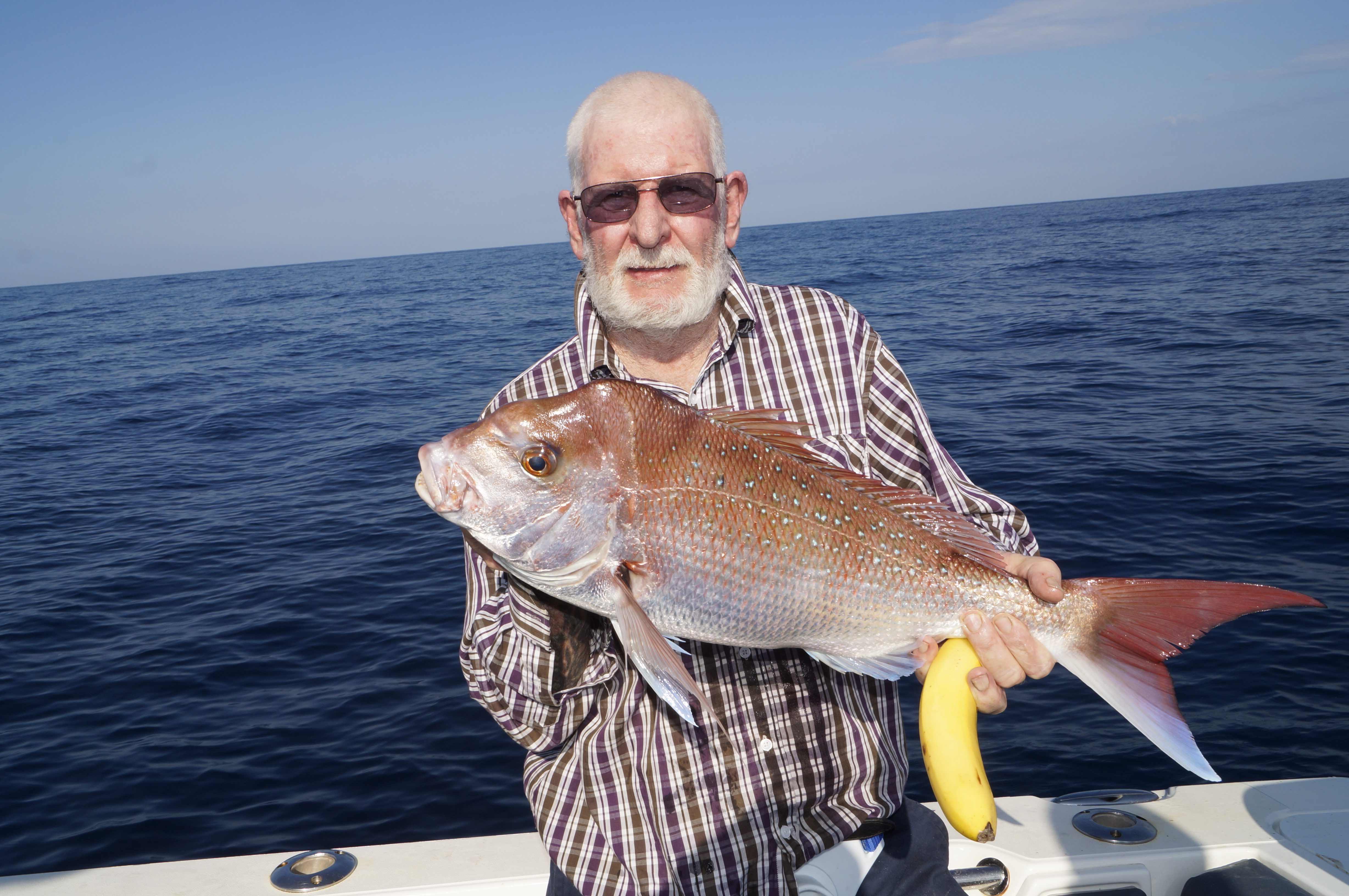
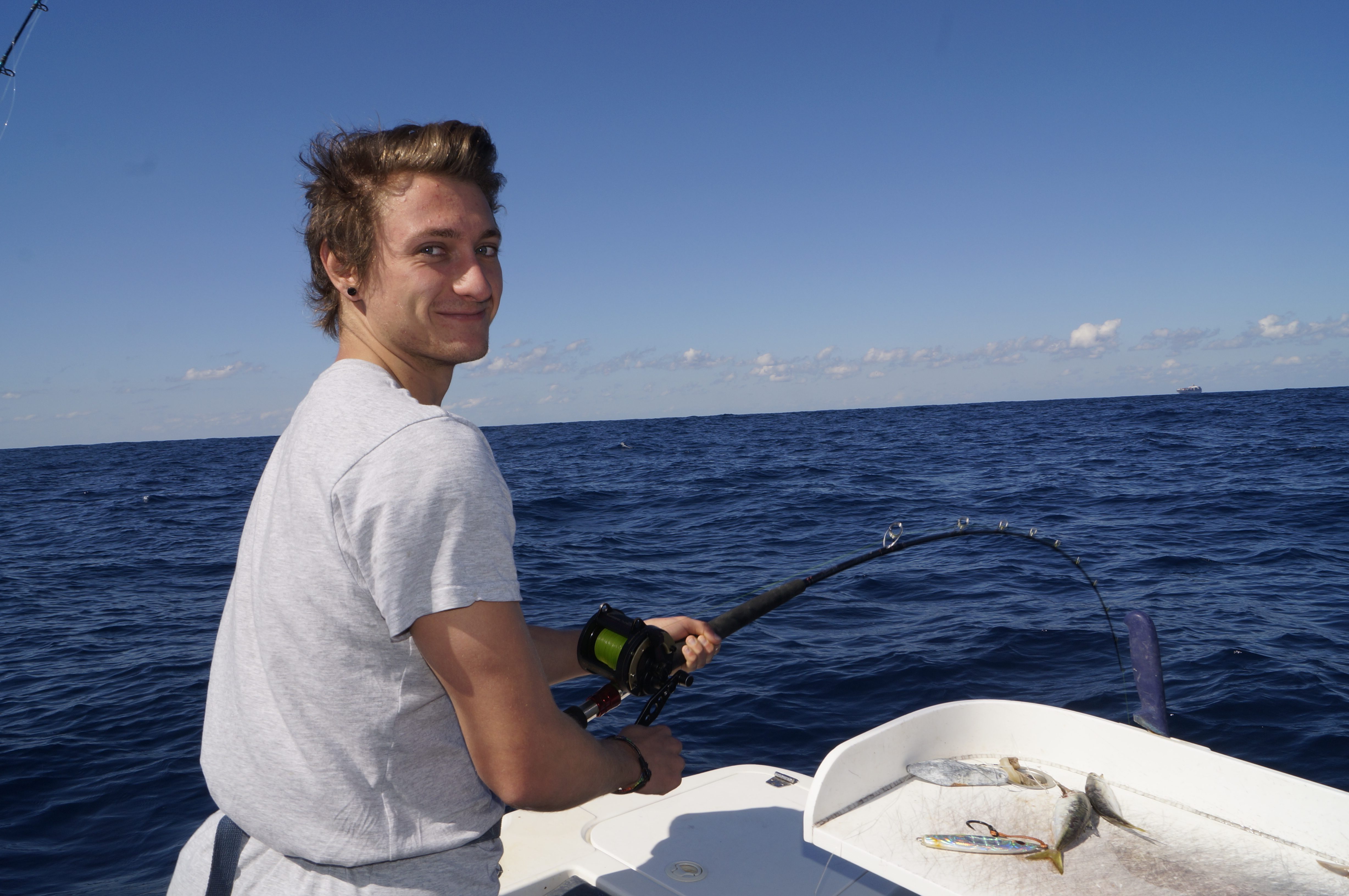
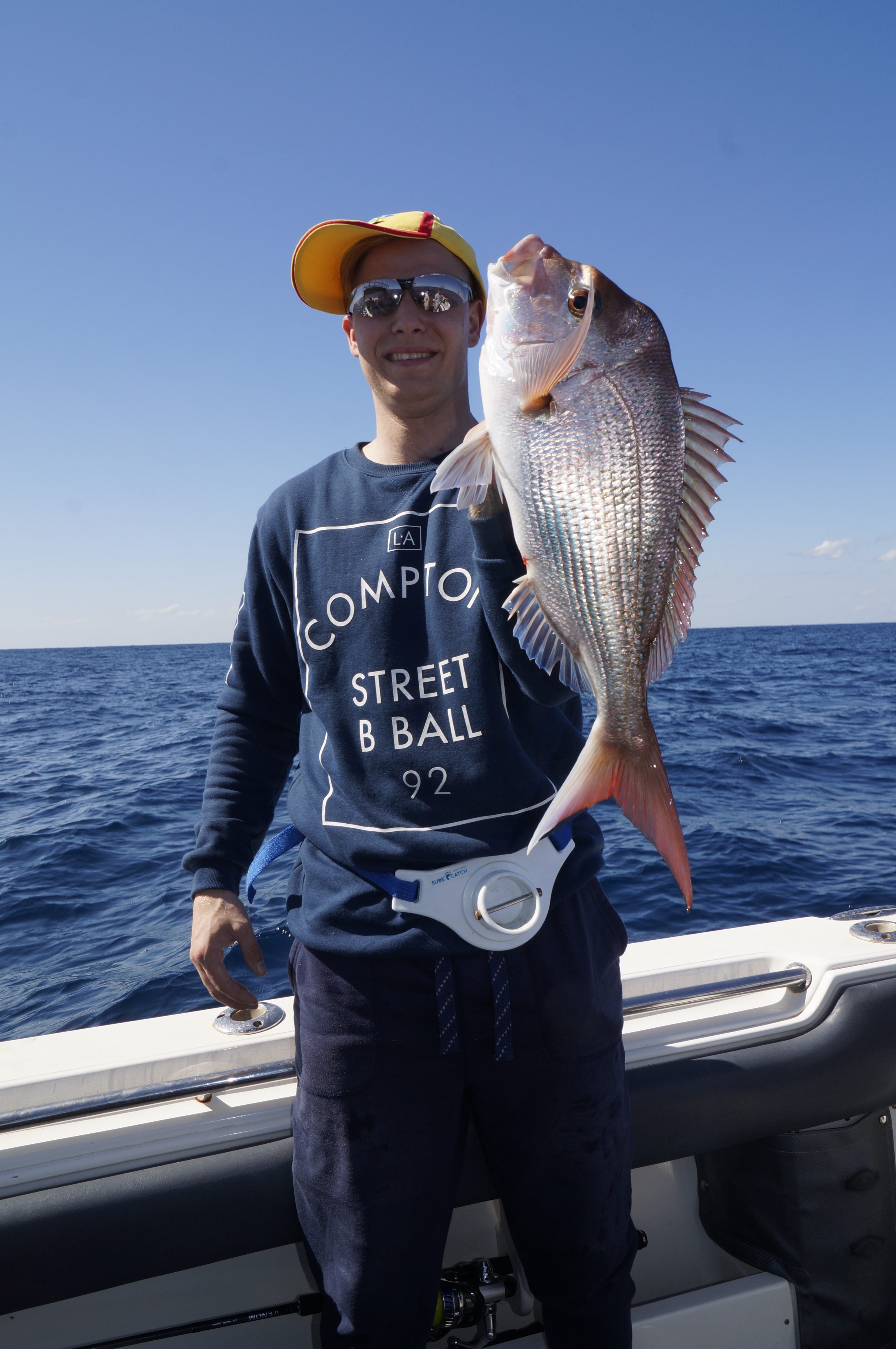
Fishing Communication
On another note, communication on the water can be vital whenever any form of breakdown or unexpected emergency occurs.
VHF repeater channel 21 provides the best radio range for anyone fishing offshore in our backyard off Brisbane thanks to Redcliffe Coast Guard. While that VHF repeater on Moreton Island was off the air for maintenance recently, several people mentioned their concerns that their radio wasn’t working.
It highlighted the lack of knowledge many users have of the VHF network and what their options are with the other channels and the protocols that go with VHF radio. A radio operator’s course is required to operate a VHF and the best way to gain the knowledge and experience is to do one of the courses conducted by Redcliffe Coast Guard and most of the volunteer groups around southeast Queensland.
The Moreton Bay Trailer Boat Club (Marine Radio Brisbane) also runs a great course and is worth a follow-up call to the radio room on 07 3396 2778.
For those who rely on mobile phones, remember the numberous mobile phone ‘black spots’ as you fish or travel up along the Deep Tempest area east of Moreton Island, as well as those in several other areas frequented by recreational users. I run a mobile phone antenna on the boat and my phone has an aerial connection to ensure I have no communication issues when in black spot areas. Alternatively, something like the satellite phone we take on our remote off-road caravan adventures can cover all situations. Some food for thought if you want to keep safe on the water.
 Bush 'n Beach Fishing Magazine Location reports & tips for fishing, boating, camping, kayaking, 4WDing in Queensland and Northern NSW
Bush 'n Beach Fishing Magazine Location reports & tips for fishing, boating, camping, kayaking, 4WDing in Queensland and Northern NSW





